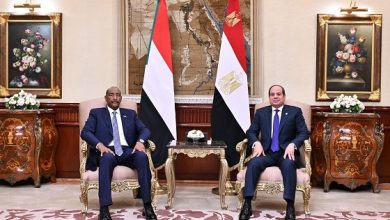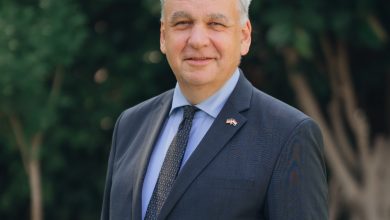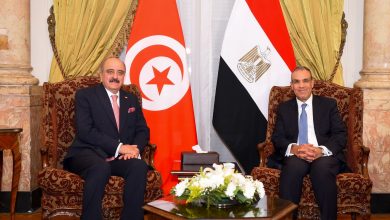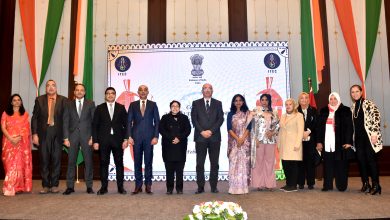on the Path to a Gaza Ceasefire and Humanitarian Relief, a Joint Statement by Qatar, Egypt, and the United States

Over the past 48 hours in Doha, senior officials from our governments have engaged in intensive discussions as mediators aiming to reach a ceasefire agreement in Gaza and secure the release of hostages and detainees. These talks were serious, constructive, and conducted in a positive atmosphere.
Earlier today in Doha, the United States, with the support of Qatar and Egypt, presented a proposal to both parties that narrows the gaps between them and aligns with the principles set forth by President Biden on May 31, 2024, and UN Security Council Resolution 2735. This proposal builds on the points of agreement achieved over the past week and bridges the remaining gaps in a manner that allows for the swift implementation of the agreement.
Technical teams will continue to work in the coming days on the details of the implementation, including arrangements for the humanitarian aspects of the agreement, as well as those related to hostages and detainees.
Senior officials from our governments will meet again in Cairo before the end of next week, hoping to reach an agreement according to the terms proposed today. As the leaders of the three nations emphasized last week, there is no more time to waste, and no excuses will be accepted from any party to justify further delays. The time has come to release the hostages and detainees, begin the ceasefire, and implement this agreement.
The path is now clear to achieving this outcome, saving lives, providing relief to the people of Gaza, and calming regional tensions.
Qatar’s Ongoing Efforts to Achieve a Ceasefire in Gaza Amid Intense Diplomatic Negotiations
In the context of the ongoing and escalating conflicts in the Middle East, Qatar has emerged as a key player in international efforts aimed at establishing peace and halting violence, particularly in the Gaza Strip. Through its active diplomacy, Qatar strives to bring stability to the region through mediation initiatives and the provision of humanitarian aid. Among these initiatives, Qatar has played a pivotal role in the ongoing talks concerning a ceasefire in Gaza and the release of hostages.
The Ongoing Negotiations in Doha

On Thursday, Qatar’s Ministry of Foreign Affairs spokesperson, Majed Al-Ansari, announced that the talks regarding a ceasefire in Gaza would continue on Friday, reaffirming Qatar’s ongoing mediation efforts in collaboration with Egypt and the United States. These negotiations, held in the Qatari capital Doha, address sensitive issues such as the release of hostages and the increase of humanitarian aid to the besieged territory.
These talks follow ten months of a devastating war between Israel and Hamas, which has resulted in the deaths of more than 40,000 people, according to the Gaza Ministry of Health. In this context, the parties involved in the negotiations aim to reach a comprehensive truce that would alleviate the suffering of civilians and pave the way for an exchange of hostages between the two sides.
Qatar’s Crucial Mediation Role
Qatar plays a crucial role in these negotiations, thanks to its close ties with Hamas, whose leaders are based in Doha. As a small state with significant influence in regional politics, Qatar has positioned itself as a trusted mediator in conflicts between Israel and Palestinian factions. Doha leverages its diplomatic relationships to balance the interests of various parties, including its relations with Western countries like the United States.
In this context, both the United States and Israel have confirmed sending delegations to Qatar to participate in the negotiations, with mediators conveying proposals between the concerned parties without direct meetings. This form of mediation represents one of the most notable examples of “backchannel” diplomacy, through which Qatar seeks to achieve tangible results without the need to announce deals publicly.
Challenges and Hopes
These talks are taking place against a backdrop of regional escalation between Israel on one side and Iran and its allies on the other, adding further complications to efforts to secure a ceasefire. Despite these challenges, the mediating parties, including Qatar, remain optimistic about the possibility of reaching a final agreement that would halt the fighting and end the humanitarian suffering in Gaza.
A source familiar with the negotiations indicated that Hamas is interested in ending the war and reaching a deal that includes a ceasefire and a prisoner exchange, based on the proposal presented by U.S. President Joe Biden, which includes three phases: ceasefire, withdrawal of Israeli forces from populated areas in Gaza, and the introduction of humanitarian aid.
Qatar continues to play a pivotal role in the pursuit of a truce in Gaza through its relentless diplomatic efforts and ongoing coordination with Egypt and the United States. The ongoing negotiations in Doha highlight the significant role that Qatar plays in bridging the gap between conflicting parties and working towards peaceful solutions to ongoing conflicts. As the talks continue, there remains hope that these efforts will result in a ceasefire that paves the way for stability and peace in the region.



